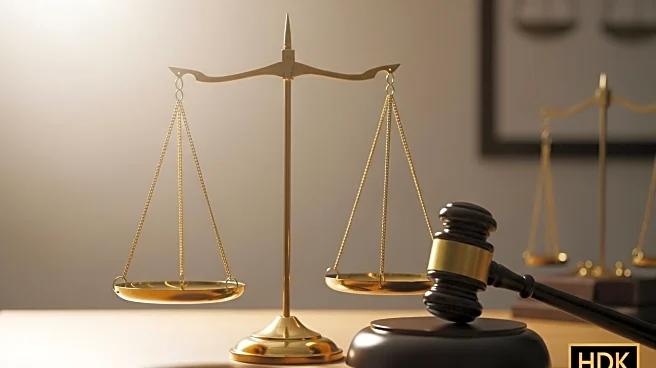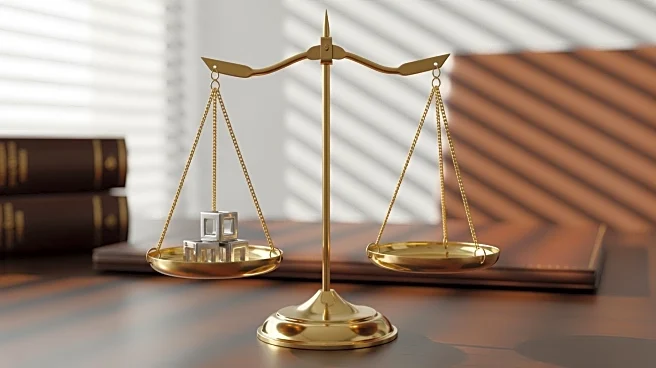What's Happening?
US Supreme Court Justice Amy Coney Barrett recently addressed the complexities surrounding her decisions to recuse herself from certain cases, citing potential personal and other costs. During a SCOTUSblog event in Washington, Barrett explained that recusals can stem from financial conflicts or deeply held convictions, as well as matters previously worked on in lower courts or other jobs. She emphasized that providing detailed explanations for recusals could expose justices to broader personal scrutiny, which might be troubling. Barrett noted that while liberal justices often cite federal recusal law and ethics codes when explaining their recusals, conservative justices, including herself, typically refrain from doing so. Barrett's recent recusal in a case involving Oklahoma's attempt to establish a faith-based charter school was highlighted, where she did not provide an explanation despite her close ties to a key adviser involved in the case.
Why It's Important?
The issue of recusal explanations is significant as it touches on the transparency and accountability of Supreme Court justices. Barrett's reluctance to provide detailed reasons for her recusals raises questions about the balance between personal privacy and public accountability. This practice can impact public trust in the judiciary, as transparency is often seen as a cornerstone of ethical judicial conduct. The broader implications include potential shifts in how recusals are perceived and handled within the court, influencing the court's decisions and its relationship with the public. Stakeholders such as legal professionals, ethics watchdogs, and the general public may be affected by these practices, as they seek clarity and assurance in the judicial process.
What's Next?
The discussion around recusal explanations may prompt further debate within the legal community and among policymakers regarding the need for clearer guidelines or reforms. As the Supreme Court continues to face scrutiny over its ethical standards, there may be calls for more comprehensive codes of conduct that address recusal transparency. Additionally, the court's decisions in high-profile cases could be influenced by these practices, potentially affecting public perception and trust. Stakeholders, including legal scholars and ethics committees, may advocate for changes to ensure greater accountability and transparency in judicial conduct.
Beyond the Headlines
The reluctance to explain recusals may have deeper implications for the judicial system, including ethical considerations and the potential for perceived bias. The practice could lead to discussions about the ethical responsibilities of justices and the impact of personal relationships on judicial decisions. Long-term shifts in public trust and the perception of judicial impartiality could be triggered by these practices, influencing the broader legal landscape and societal views on justice and fairness.








